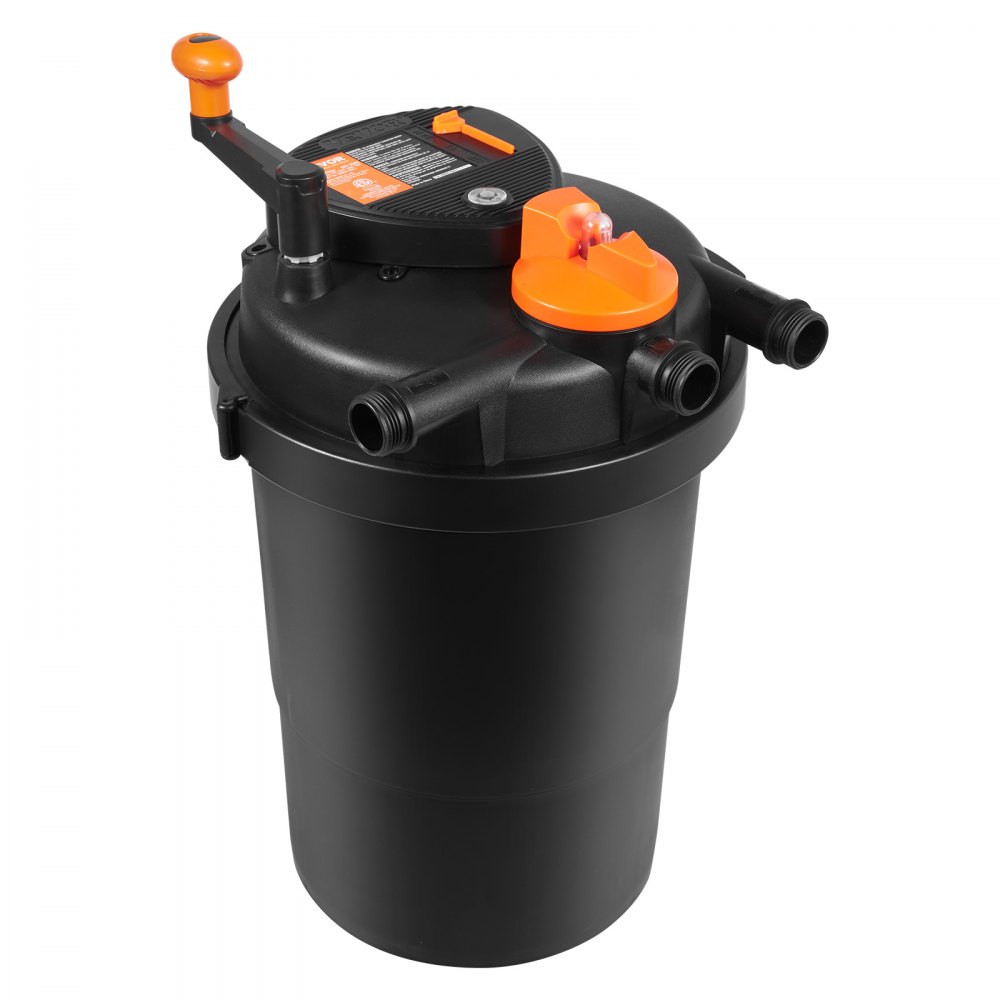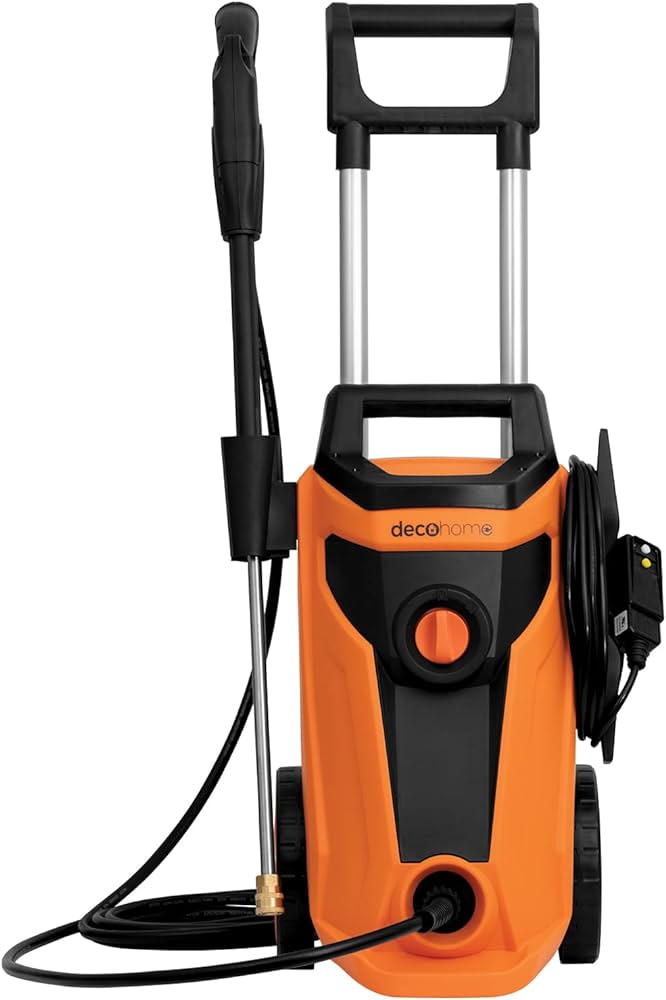Pressure washers require a pressurized water supply for effective operation. Without pressurized water, these machines cannot generate the force required to clean surfaces thoroughly and efficiently.
A pressure washer is a versatile and powerful tool used for cleaning a variety of surfaces, such as driveways, decks, patios, and vehicles. It works by using high-pressure water sprays to remove dirt, grime, mold, and other stubborn stains from different surfaces.
However, to achieve this cleaning power, pressure washers need to be connected to a pressurized water source. Having a pressurized water supply ensures that the pressure washer can generate the necessary force to effectively clean and remove debris. Without adequate water pressure, the performance of the pressure washer will be compromised, resulting in less effective cleaning results. Therefore, a pressurized water supply is essential for the proper operation of pressure washers.
Page Contents
- 1 How Do Pressure Washers Work?
- 2 Understanding The Importance Of A Pressurized Water Supply
- 3 Differences Between Pressurized And Non-pressurized Water Supply
- 4 Factors Affecting Water Pressure For Pressure Washers
- 5 Ensuring Proper Water Supply For Pressure Washers
- 6 Enhancing Pressure Washer Performance With Optimized Water Supply
- 7 Frequently Asked Questions On Do Pressure Washers Need Pressurized Water Supply
- 8 Conclusion
How Do Pressure Washers Work?
Pressure washers are powerful cleaning machines that use water to remove dirt, grime, and stains from various surfaces. They work by pressurizing water, which is then sprayed out through a narrow nozzle at high velocity.
Pressure washers are commonly used for outdoor cleaning tasks such as cleaning decks, driveways, and siding. These machines rely on a water supply, which is usually connected to a tap or a hose. The water is then pressurized by a motor or pump, creating a high-pressure stream of water.
Explanation of how pressure washers use water to clean
The high-pressure water stream generated by a pressure washer is highly effective at removing dirt, grime, and other contaminants. The force of the water effectively loosens and removes stubborn stains and debris from surfaces. Pressure washers often come with different nozzle attachments that allow for adjustment of the water spray pattern and pressure, making them versatile and suitable for various cleaning tasks.
The role of water pressure in the cleaning process
The pressure of the water is a crucial factor in the cleaning process. Higher water pressure leads to a more powerful and efficient cleaning performance. The pressure effectively agitates the dirt and grime, allowing it to be easily rinsed away. It is essential to use the appropriate water pressure for different surfaces to avoid causing damage. Pressure washers typically come with adjustable pressure settings to ensure safe and effective cleaning.
Understanding The Importance Of A Pressurized Water Supply
Pressurized water supply is vital for efficient operation of pressure washers. Without it, the cleaning power of the machine would be greatly reduced, compromising its effectiveness in removing stubborn dirt and grime. Understanding the importance of a pressurized water supply ensures that your pressure washer performs optimally.
- Pressure washers require high water pressure for effective cleaning.
- High water pressure helps to dislodge dirt, grime, and debris from surfaces.
- Using pressurized water can save time and effort in cleaning tasks.
- Pressurized water creates a powerful stream that can reach and clean hard-to-reach areas.
- The benefits of using pressurized water include efficient cleaning of large surfaces and objects.
- Pressurized water can remove stubborn stains and dirt that regular water pressure cannot.
- It also ensures a more thorough and consistent cleaning performance.
- Pressure washers equipped with high-pressure nozzles maximize the cleaning power of pressurized water.
Differences Between Pressurized And Non-pressurized Water Supply
Differences between pressurized and non-pressurized water supply can greatly affect the performance of a pressure washer. Pressurized water supply, typically provided by a garden hose connected to a source with high pressure, offers several advantages over regular household water supply. Firstly, pressurized water is delivered in a more forceful manner, allowing for a more efficient and powerful cleaning process. This increased pressure leads to improved cleaning effectiveness and the ability to tackle tough dirt and grime. Regular household water supply, on the other hand, may not provide the necessary pressure to achieve optimal cleaning results. Therefore, when using a pressure washer, it is crucial to ensure a pressurized water supply to maximize its cleaning capabilities.
Factors Affecting Water Pressure For Pressure Washers
Pressure washers are powerful cleaning tools that require a steady and pressurized water supply to effectively remove dirt and grime. Several factors can affect the water pressure needed for optimal pressure washer performance.
The role of the water source is crucial in determining the pressure washer’s effectiveness. Different types of water sources are suitable for pressure washers, including municipal water supply, well water, and even collected rainwater. It is essential to consider the quality and availability of the water source to ensure consistent performance.
Moreover, the optimal water pressure range is between 1200 to 4000 pounds per square inch (psi) for effective cleaning. It is important not to exceed the manufacturer’s recommended pressure limits, as this can damage surfaces or equipment.
Overall, having a pressurized water supply is essential for pressure washer functionality. Ensuring a suitable water source and maintaining the proper water pressure range will help achieve excellent cleaning results.
Ensuring Proper Water Supply For Pressure Washers
Pressure washers are a powerful tool for cleaning various surfaces, but they do require a pressurized water supply to function effectively. To ensure proper water supply for pressure washers, there are a few tips to keep in mind:
- Use a water pressure regulator to control the water flow and avoid damaging the machine. This will ensure a consistent and safe pressure for the pressure washer.
- Install a water filter to prevent any debris or impurities from clogging the machine and affecting its performance. Regularly clean or replace the filter to maintain optimal water flow.
- Check the water supply source to ensure it can provide enough pressure for the pressure washer. A minimum water pressure of 20 pounds per square inch (psi) is typically required for most pressure washers.
- In case of low water pressure, inspect the hose and fittings for any obstructions, leaks, or blockages. Clear any blockages or replace damaged parts as needed.
- If the pressure washer is not getting enough water, make sure the water source valve is fully open and the hose is not kinked or tangled.
- Monitor the water supply for any fluctuations or irregularities and address any issues promptly to prevent damage to the pressure washer.
Enhancing Pressure Washer Performance With Optimized Water Supply
The water supply for pressure washers is crucial for their performance and cleaning power. In order to enhance the effectiveness of a pressure washer, it is important to optimize the water supply. One way to achieve this is by using accessories that improve water flow and pressure. Attachments like high-pressure nozzles, turbo nozzles, and surface cleaners can help to increase water pressure and provide a more powerful cleaning experience. Additionally, understanding the relationship between water supply and cleaning power is essential.
By ensuring that the pressure washer is connected to a pressurized water supply, the cleaning efficiency can be significantly improved. This can be achieved by connecting the pressure washer to a water source with a high flow rate and sufficient pressure. The use of hoses with larger diameters can also help to maintain adequate water pressure. Moreover, regular maintenance of the pressure washer, including cleaning the inlet filters and checking for any blockages, can contribute to optimal water flow and pressure.
| Technique | Description |
|---|---|
| Use of high-pressure nozzles | Increases water pressure for improved cleaning power |
| Utilize turbo nozzles | Produces a rotating spray pattern that enhances water pressure |
| Invest in surface cleaners | Provides uniform pressure and improved water flow for large surface cleaning |
By implementing these advanced techniques, pressure washer performance can be optimized and the overall cleaning experience can be enhanced. It is important to ensure that the pressure washer is connected to a pressurized water supply and to use accessories that improve water flow and pressure. Understanding the relationship between water supply and cleaning power is key to achieving the best results with a pressure washer.

Credit: www.vevor.com
Frequently Asked Questions On Do Pressure Washers Need Pressurized Water Supply
Can Pressure Washers Work Without A Pressurized Water Supply?
Yes, pressure washers require a pressurized water supply to effectively clean surfaces. The pressurized water allows the machine to remove dirt, grime, and debris efficiently. Without a pressurized water supply, the pressure washer will not be able to generate the necessary force to tackle tough cleaning tasks.
Why Is A Pressurized Water Supply Important For Pressure Washers?
A pressurized water supply is vital for pressure washers because it creates the necessary force to remove dirt and grime effectively. The high-pressure water stream can penetrate deep into surfaces and dislodge stubborn stains. Without the pressurized water supply, the pressure washer will not be able to deliver the desired cleaning performance.
Can I Use A Pressure Washer With Low Water Pressure?
No, it is not recommended to use a pressure washer with low water pressure. The effectiveness of the pressure washer depends on the high-pressure water stream it generates, which requires a sufficient water supply. If the water pressure is low, the pressure washer will not perform optimally and may not provide the desired cleaning results.
Conclusion
Pressure washers require a pressurized water supply to maximize their cleaning effectiveness. The high pressure generated by these machines allows for the efficient removal of dirt, grime, and other stubborn stains. Without a pressurized water supply, the pressure washer may not deliver the desired results.
So, it is essential to ensure a sufficient water pressure source when operating a pressure washer. With the right water pressure, you can achieve sparkling clean surfaces effortlessly.

